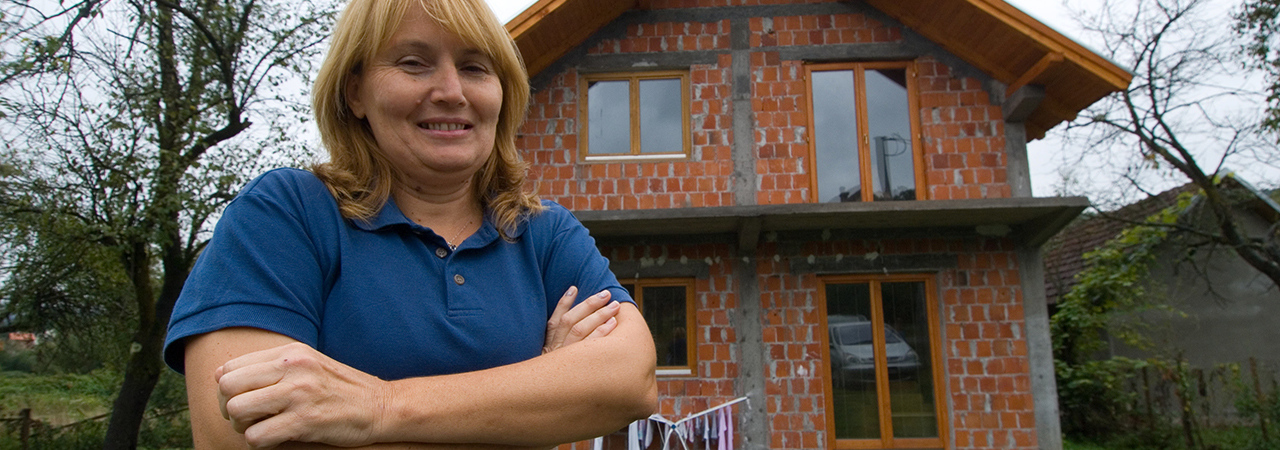

Media CenterBosnia and Herzegovina National Government Adopts Roadmap to Peace
FOR IMMEDIATE RELEASE
CONTACT:
Megan Gilbert
Catholic Relief Services
[email protected]
(443) 825-3640
Peace Platform Developed by Catholic Relief Services to Ease Ethnic Tensions
BOSNIA AND HERZEGOVINA, September 12, 2018 – After more than 20 years of fragile peace, with deep ethnic tensions still simmering below the surface, the Bosnia and Herzegovina (BiH) Parliamentary Assembly has supported a roadmap to lasting reconciliation. The Platform for Peace, developed by Catholic Relief Services (CRS) in cooperation with the State Ministry of Human Rights and Refugees BiH, outlines specific activities that political, religious and public leaders, the news media, and others can take to bridge the divisions that continue to plague the country.
“We as members of parliament can contribute [to lasting peace] by adopting the Platform and directly supporting peace initiatives,” Parliamentarian Lazar Prodanović said. “We cannot change what happened, but we can do more to build genuine peace in BiH to ensure that nothing similar ever happens again.”
The adoption of the Platform commits the Parliament to finding ways to directly support people and organizations who are implementing peacebuilding projects. This includes allowing and encouraging war victims from all three ethnic groups to speak about their experiences at public events. Not everyone is familiar with these stories, so this gives people a chance to empathize with victims and ease some of the prejudices people have towards different groups.
“The mistrust among ethnic groups in Bosnia and Herzegovina is still evident every day,” Majda Behrem-Stojanov, CRS program manager, said. “To see this kind of commitment from the authorities sends a positive message to everyone who hopes for a lasting peace. People need to hear that leaders are serious about finding common ground.”
The Platform of Peace provides a vision of what a reconciled Bosnia and Herzegovina could look like. The three-page document summarizes the need for reconciliation activities in a country where 100,000 people were killed and 2 million were displaced during three years of warfare between Serbs, Croats and Bosniaks.
At the municipal level, CRS works with 71 mayors who signed the Platform, to incorporate at least three to five actions into their annual work plans and budgets that require the approval of their municipal assemblies. Four assemblies have already developed concrete action plans, and CRS continues to work with political parties and leaders, news media, cultural and educational institutions and religious communities to build solid foundations for long-lasting and stable peace in the country.
At the Balkan level, CRS will coordinate with BiH’s Joint Parliamentary Committee to reach out to their counterparts in Serbia, Croatia, and Montenegro in an effort to secure regional support for these reconciliation initiatives.
“In a country where lip service is often paid to principles and legislation that is rarely followed up with action, we have some big challenges,” Behrem-Stojanov said. “But because of the broad support we have already received, there is a hope that our country is on a good path that will lead us to genuine reconciliation and long-lasting peace.”
CRS has worked in Bosnia-Herzegovina since 1993, when it began providing emergency relief to people living under siege in Sarajevo. At the end of the war, CRS helped families return to homes they fled during the conflict. CRS continues these efforts through rebuilding and constructing housing and infrastructure, promoting livelihoods and education, and providing psychological support. The Platform for Peace is part of $5 million PRO-Future peacebuilding project funded by USAID and implemented by the CRS.
###
Catholic Relief Services is the official international humanitarian agency of the Catholic community in the United States. The agency alleviates suffering and provides assistance to people in need in more than 100 countries, without regard to race, religion or nationality. CRS’ relief and development work is accomplished through programs of emergency response, HIV, health, agriculture, education, microfinance and peacebuilding. For more information, please visit crs.org or crsespanol.org and follow CRS on social media: Facebook, @CatholicRelief, @CRSnews, YouTube, Instagram and Pinterest.

